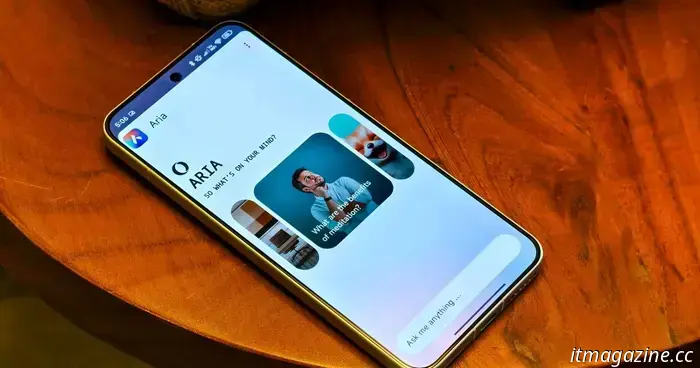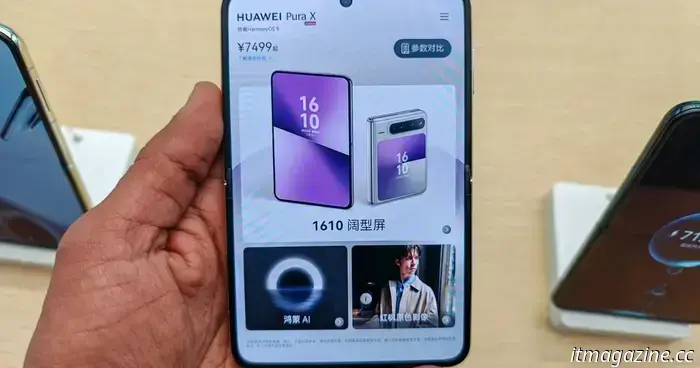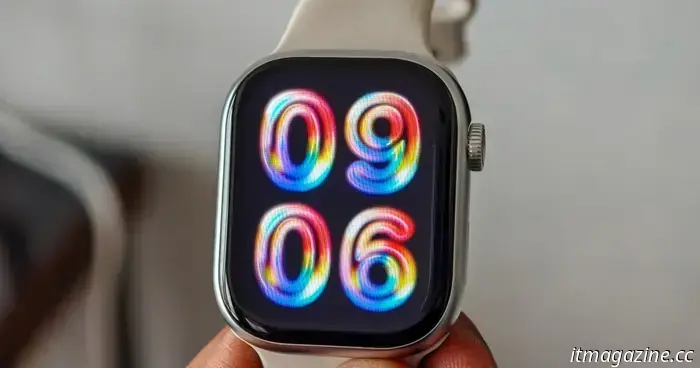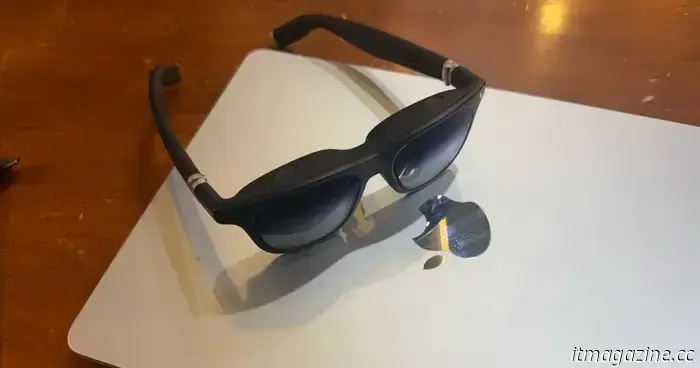
I assessed Opera Mini’s AI chatbot alongside ChatGPT and Gemini, and I am quite impressed.
Opera Mini is a mobile browser with a long-standing history that predates the emergence of mobile platforms like Android and iOS. Its popularity has diminished over time, particularly as Google and Apple have introduced more sophisticated browsers, such as Chrome and Safari, which come pre-installed on smartphones. In response to this competitive pressure, Opera—the company behind the browser—has made some unpopular decisions, including incorporating full-screen banner ads and a sensational news feed into its interface.
That said, one area where Opera Mini continues to be significant is its data-saving capabilities, which were once a major selling point during the early smartphone era when data was expensive and limited. Although issues like slow internet speeds and data caps are less common now, there are still times when users experience connection problems, making Opera Mini's features useful.
Recently, Opera Mini updated its platform to include an AI chatbot named Aria, which can respond to inquiries and generate images. To evaluate Aria's effectiveness, I compared its performance against ChatGPT and Google Gemini.
How Opera Mini’s AI Stands Out
Aria benefits from its integration within the web browser, meaning that if you are already using Opera Mini, there’s no need for a separate app. At present, Aria supports two modes of input: text and images. It allows users to submit text queries and generate images, in addition to uploading images and answering questions based on them.
Although these features are useful, they are somewhat standard among various chatbots. One intriguing aspect is Opera’s claim that having the chatbot within the browser aids in data savings. In this article, I will investigate these claims to determine if the purported data savings are genuine.
Unlike AI models developed from the ground up by OpenAI, Google, Meta, and a wide range of other providers, Opera's chatbot is built on an AI engine that relies on models from Google and OpenAI. The specifics of how this engine operates are not revealed, making it interesting to see how Aria differentiates itself from the offerings of these companies.
Testing Opera’s AI Against ChatGPT and Google Gemini
I structured the testing into four parts to evaluate each chatbot's abilities with tasks of varying complexity. These tests assessed Opera Mini’s Aria AI, Google Gemini, and ChatGPT for accuracy, response speed, and the data consumed during each query.
To gauge the data usage of each chatbot in processing different prompts, I examined Android's app-wise data usage statistics after running each query. While this method may not be the most precise or scientific, the objective was to validate Opera's claims about data savings while using its AI and to estimate how much data it consumes compared to competitors. Thus, the data usage statistics are simplified, rounded to multiples of 0.1MB.
For uniformity in results, I conducted the tests on the free versions of Gemini (using the 2.0 Flash model) and ChatGPT (using the GPT-4-turbo model).
Prompt 1: Basic Text Knowledge
For the first test, I utilized a simple text prompt to assess each chatbot’s response time and data consumption with straightforward queries that the AI may have encountered during training.
The initial prompt was:
What is the capital of Argentina?
Since this query is straightforward, all three chatbots provided correct answers. However, the processing times and data consumption varied significantly among them, as demonstrated in the table below.
Opera Mini Aria | Google Gemini | ChatGPT
Data consumed (MB) | 0.1 | 0.1 | 0.05
Time taken (seconds) | 10 | 3 | 2
Both Gemini and ChatGPT responded significantly faster than Aria, which took nearly four times longer than the other two. Additionally, Opera’s AI did not substantially save data in this instance, especially compared to ChatGPT, which used virtually no data to retrieve the answer.
Despite a sluggish start, let's see how Aria performed with other prompts.
Prompt 2: In-Depth Text Processing with Research
For the next test, I selected a more intricate prompt requiring the chatbots to analyze the scenario before generating a response. This prompt not only assessed their speed but also their capability to gather information from diverse online resources.
The second prompt was:
Create a detailed 5-day itinerary for a solo traveler visiting Kyoto, Japan for the first time. Include cultural experiences, food recommendations, and a rough daily schedule with travel tips.
This prompt required more effort from all the chatbots, and they consistently took longer to process the requests. Here are the results compared similarly to the previous prompt:
Opera Mini Aria | Google Gemini | ChatGPT
Data consumed (MB) | 0.2 | 0.4 | 0.05
Time taken (seconds) | 20 | 25 | 35
It was compelling to see ChatGPT gather information using minimal data, as if it were accessing a mental repository. While the reason isn't immediately clear, it appears that ChatGPT may















Other articles
 Four Chinese smartphones I wish were offered in the US.
The US offers some excellent smartphones, but many of the top models are exclusive to certain regions or only available in China. Here are four Chinese smartphones that I wish were offered in the US.
Four Chinese smartphones I wish were offered in the US.
The US offers some excellent smartphones, but many of the top models are exclusive to certain regions or only available in China. Here are four Chinese smartphones that I wish were offered in the US.
 I purchased a $12 Apple Watch Series 10; it's quite strange.
This is not an official Apple Watch Series 10; instead, it's a replica that only set me back $12. Here's why it's strange and one thing it outperforms compared to Apple.
I purchased a $12 Apple Watch Series 10; it's quite strange.
This is not an official Apple Watch Series 10; instead, it's a replica that only set me back $12. Here's why it's strange and one thing it outperforms compared to Apple.
 Welcome to Huaqiangbei, the most astonishing technology market in the world.
Shenzhen, China, is a paradise for technology enthusiasts, and this is exemplified perfectly at Huaqiangbei. Here’s an insight into the world’s most astonishing technology market.
Welcome to Huaqiangbei, the most astonishing technology market in the world.
Shenzhen, China, is a paradise for technology enthusiasts, and this is exemplified perfectly at Huaqiangbei. Here’s an insight into the world’s most astonishing technology market.
 Asus Zenbook A14 review: exceptionally lightweight and remarkably durable.
The Asus Zenbook A14 is a 14-inch laptop that becomes more appealing with extended use. It is exceptionally lightweight, has impressive battery life, and is fairly priced.
Asus Zenbook A14 review: exceptionally lightweight and remarkably durable.
The Asus Zenbook A14 is a 14-inch laptop that becomes more appealing with extended use. It is exceptionally lightweight, has impressive battery life, and is fairly priced.
 You might need to wait additional time for a less expensive Tesla Model Y.
Tesla is said to be developing a more affordable version of the Model Y electric vehicle that may be 20% less expensive, although these plans have been delayed until 2026.
You might need to wait additional time for a less expensive Tesla Model Y.
Tesla is said to be developing a more affordable version of the Model Y electric vehicle that may be 20% less expensive, although these plans have been delayed until 2026.
 I tested $550 smart glasses with my Mac, and they seemed more comfortable than the Vision Pro.
The Vision Pro is highly sophisticated, yet it is also uncomfortable, expensive, and lacking in functionality. I found smart glasses to provide a better experience in spatial computing.
I tested $550 smart glasses with my Mac, and they seemed more comfortable than the Vision Pro.
The Vision Pro is highly sophisticated, yet it is also uncomfortable, expensive, and lacking in functionality. I found smart glasses to provide a better experience in spatial computing.
I assessed Opera Mini’s AI chatbot alongside ChatGPT and Gemini, and I am quite impressed.
I used the built-in AI chatbot in Opera Mini, and it surprisingly delivered good performance considering its size.
